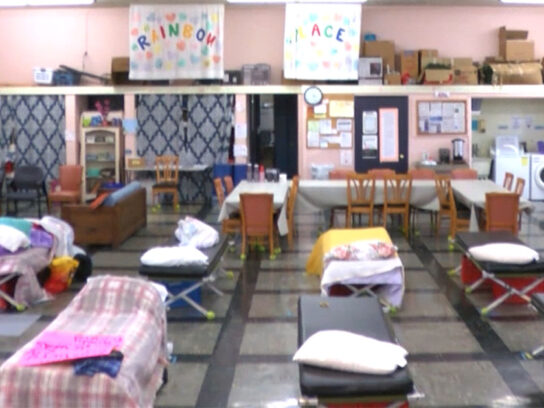
Montgomery County staff who deal with the homeless presented a grim picture of increasing evictions and not enough money to help people get their lives back together during a presentation Thursday to the council’s Health and Human Services Committee.
Housing the homeless in motels is expensive, but often is necessary when shelters are filled. Last year, the county spent $2.5 million for hotel rooms. Besides being costly, hotel rooms come without kitchens and commonly force children to start at a new school for a short time.
The county has space for 27 families in three shelters. Currently, there are about 140 homeless families, so 113 are living temporarily in hotels, according to Christine Hong, chief of the county’s homeless services.
Previously, the average homeless family had three members. Now that number is four, Hong said.
“We have families that are working real hard. Some have three or four jobs” but still can’t keep up with their rental payments, she said, estimating that between 800 and 900 families in Montgomery County are evicted annually.
“The impact on these families is so devastating, especially for the children. That trauma will live on in their lives forever,” Hong said.
Once a judge has ruled that a landlord can evict someone, that person is considered an eviction risk. In Fiscal Year 2022, 2,700 county residents were considered an eviction risk. In Fiscal Year 2023, that number jumped to 7,100. The increase, according to Hong, was partly due to the federal government ending its distribution of rental money once the pandemic lessened.
In Fiscal Year 2024, 8,200 people were on the eviction risk list. Not all those people are evicted. Some work out an agreement with their landlord to provide some of what they owe. Others walk out of their rental units on their own and find other temporary housing.
Hong’s office triages its cases, meaning they try to provide short term subsidies and counseling to keep people in their homes.
Ideally, anyone facing eviction would be assigned a counselor immediately. But the number of people facing eviction is so large that they often end up on a waiting list for assistance. “We still have a significant wait list,” Hong told councilmembers.
Hong said that the supplemental funds are expected to run out by April, a few months short of the end of the fiscal year.
Hong also discussed security issues at the county’s homeless shelters. Thanks to additional county dollars, there are more police patrols and fewer incidents.
However, Hong said, the Progress Place shelter on Georgia Road in Silver Spring, “continues to be a problem.” The county police received more than 100 calls from Progress Place “just over the last month,” she said, adding, “It’s exhausting for the staff there.”
Although November has been very warm, the county is gearing up its hypothermal shelters when freezing temperatures do start. The county has more than 100 spaces for people to stay overnight during the cold.
All this costs money. “It’s difficult, because it’s all essential,” Hong said. Her department is trying to spend fewer dollars on temporary shelter so it will have more funds to focus on getting a family into their own home.
Councilmember Gabe Albornoz, who chaired the committee meeting, said future funding may even be bleaker under the Trump Administration.
“We have to be fiscally prudent. There are a lot of question marks” concerning future federal dollars, said Councilmember Kristin Mink.


Comments are closed.